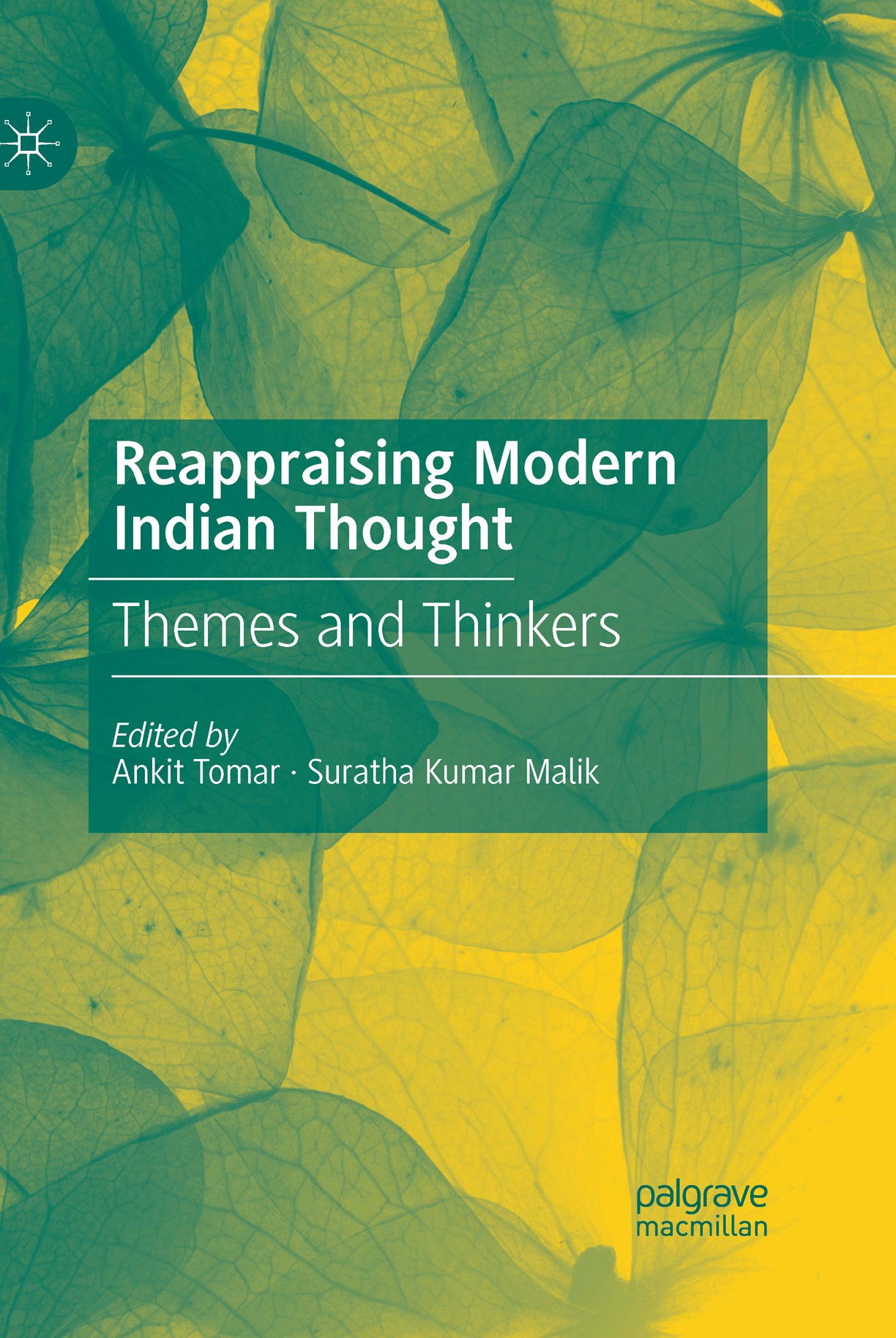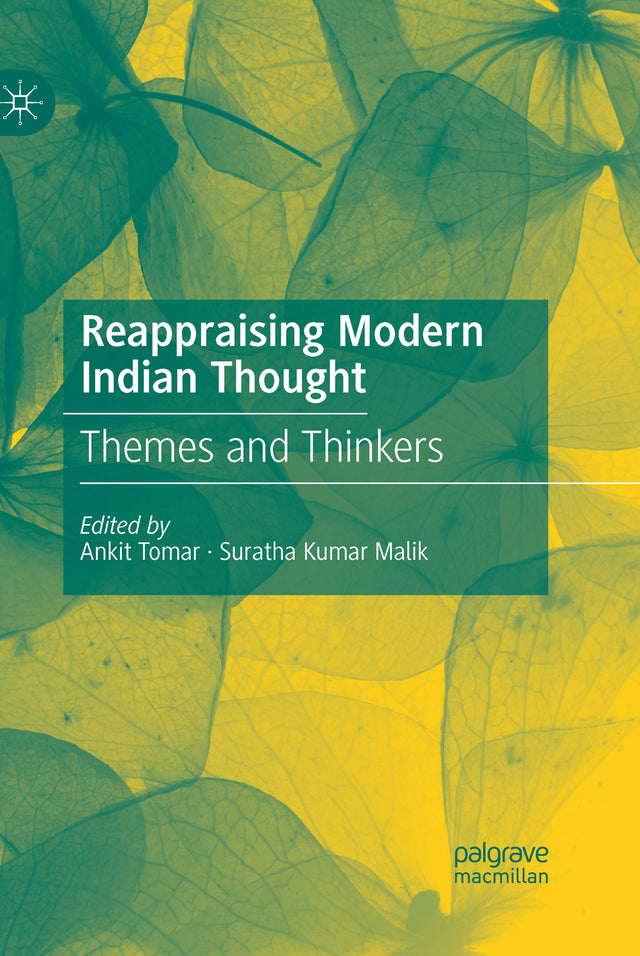REAPPRAISING MODERN INDIAN THOUGHT: Themes and Thinkers
REAPPRAISING MODERN INDIAN THOUGHT: Themes and Thinkers is backordered and will ship as soon as it is back in stock.
Couldn't load pickup availability
Genuine Products Guarantee
Genuine Products Guarantee
We guarantee 100% genuine products, and if proven otherwise, we will compensate you with 10 times the product's cost.
Delivery and Shipping
Delivery and Shipping
Products are generally ready for dispatch within 1 day and typically reach you in 3 to 5 days.
Book Details
-
Author: Ankit Tomar, Suratha Kumar Malik (Editors)
-
Publisher: Palgrave Macmillan
-
Language: English
-
Binding: Hardcover
-
Number of Pages: 385
-
Release Date: 2024
-
ISBN: 9789819983551
About the Book
"Reappraising Modern Indian Thought: Themes and Thinkers" provides a lucid and thorough examination of the socio-political thought of major Indian thinkers from the past two centuries. In contrast to existing texts on the subject, this book highlights the social and political conditions that shaped these thinkers' ideas. It starts with an exploration of the development of socio-political thought in modern India before offering an in-depth analysis of the contributions made by iconic thinkers, such as Rabindranath Tagore, Madan Mohan Malaviya, Swami Vivekananda, Aurobindo Ghose, and many more.
The book is divided into four thematic sections: Ideal-Humanist Thought, Militant-Extremist Thought, Cultural-Revivalist Thought, and Radical-Pragmatist Thought. Each section delves into the lives, times, and contributions of key thinkers, placing their ideas in a contemporary context. The book covers a wide range of topics including colonialism, nationalism, India’s freedom struggle, nation-building, economic reconstruction, education, democracy, secularism, and socialism. The chapters critically examine how these thinkers’ philosophies and actions influenced and continue to impact modern-day India.
This multi-authored compendium features contributions from experts and scholars of political thought from some of the most prestigious universities in India. As such, it serves as an essential text for students, researchers, and academicians, as well as general readers interested in developing a nuanced understanding of modern Indian thought. With its critical insights into the social, political, and cultural dimensions of India’s intellectual history, this book is a valuable resource for anyone seeking to explore the evolution of political thinking in the Indian subcontinent.





